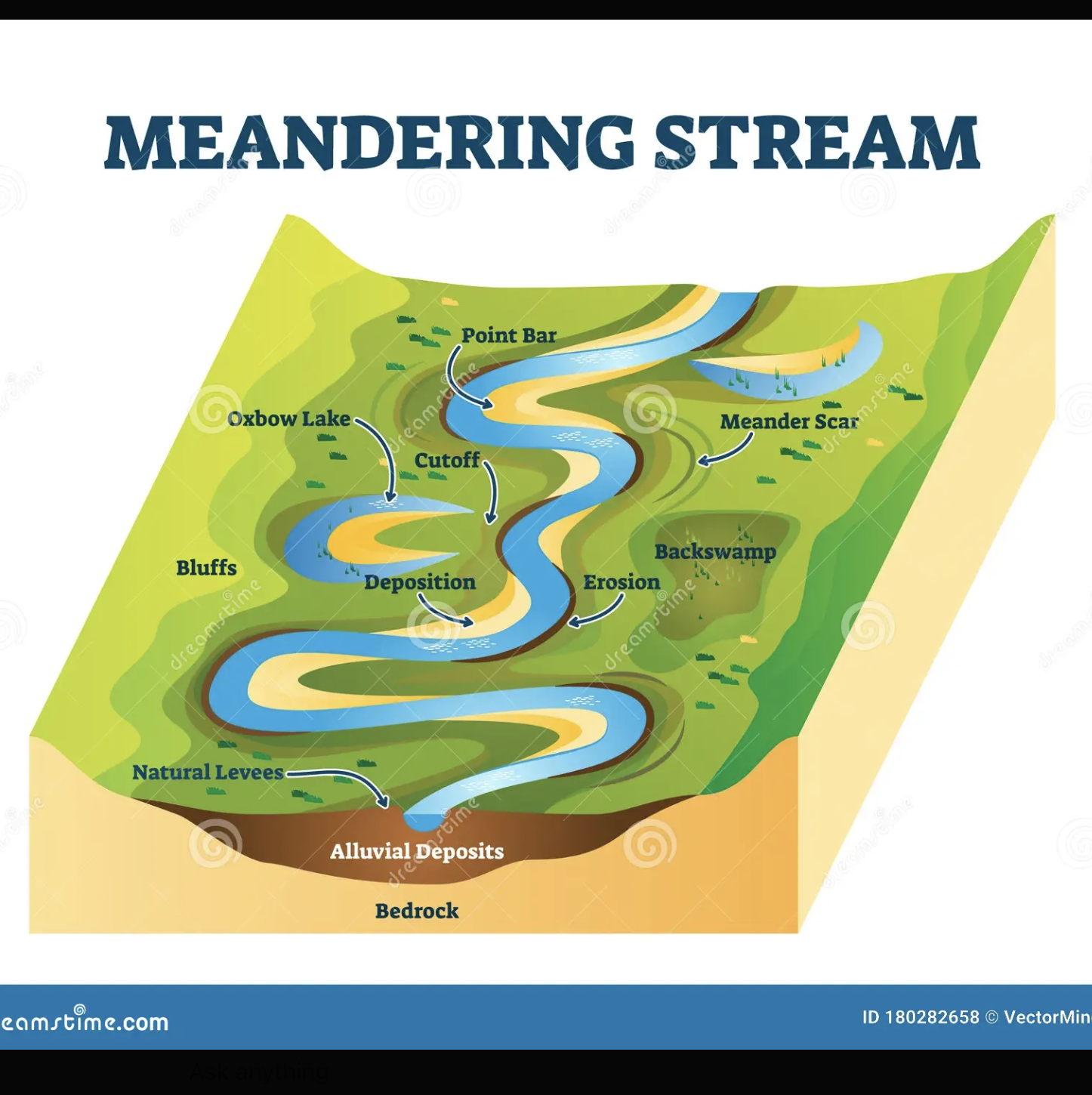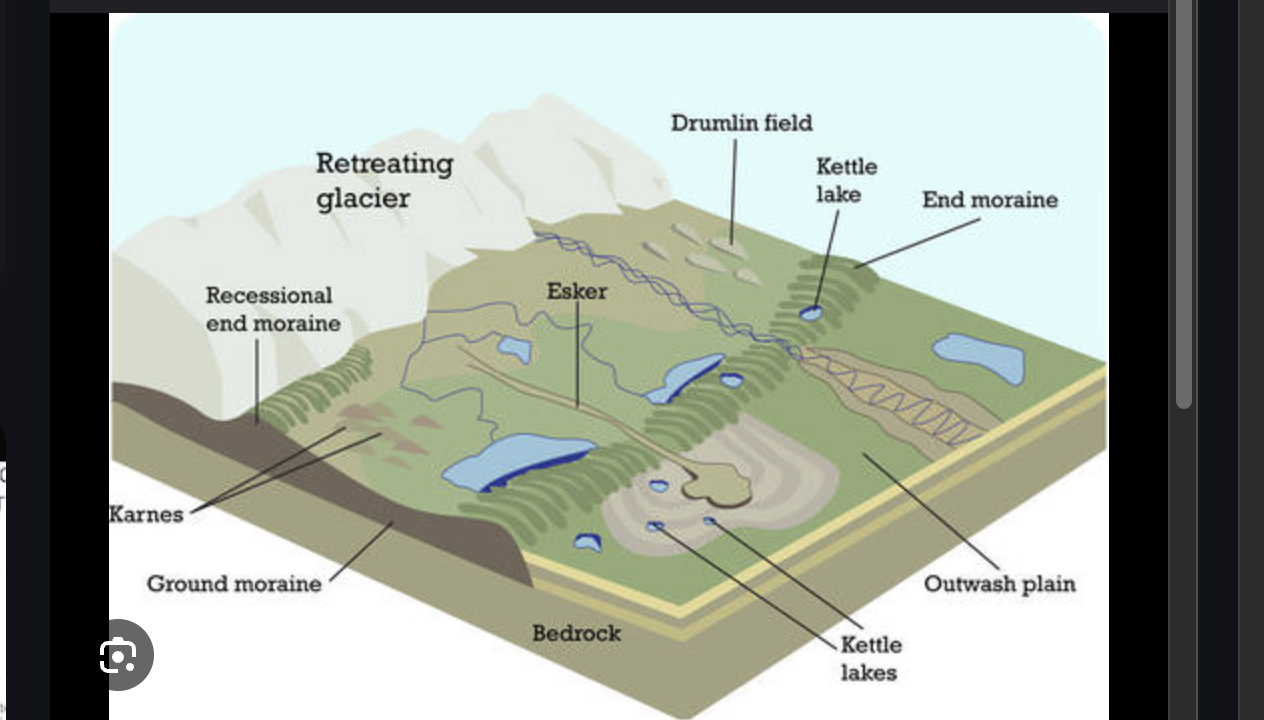esci
1/5
There's no tags or description
Looks like no tags are added yet.
Name | Mastery | Learn | Test | Matching | Spaced |
|---|
No study sessions yet.
6 Terms
explain how groundwater moves through the system and describe two factors that influence the rate of groundwater flow
High permeability, Low permeability and porosity
What might happen if groundwater is over-pumped from a well in this groundwater system?
water table drops, wells can dry up, land can sink, aquifer refill slowly

Label and explain various features on a meandering stream diagram, such as point bar, erosion, deposition, velocity differences.
Meander - A bend or curve in a river, forming a snake-like pattern as the river flows across flat terrain.
Cut Bank (Outer Bend) - The outer edge of a meander where water flows faster, leading to erosion of the riverbank.
Point Bar (Inner Bend)- The inner edge of a meander where water flows slower, causing sediment to be deposited and forming a gently sloping area.
Erosion Zone - Areas, typically on the outer bends, where the river's faster flow wears away the land.
Deposition Zone - Areas, usually on the inner bends, where the river's slower flow allows sediment to settle and accumulate.
Velocity Differences Water moves faster on the outside of bends (leading to erosion) and slower on the inside (leading to deposition).

Label the following features on the diagram:
irque, Arête, Horn, Moraine (lateral, medial, or terminal), U-shaped valley, Esker
Describe how glaciers shape the landscape and explain two erosional and two depositional landforms created by glacial activity
As glaciers move slowly over land, they erode the ground beneath by scraping, plucking, and grinding rock. When glaciers melt, they deposit the materials (like rocks and sediments) they carried, reshaping the land
Explain how global temperature anomalies (deviations from the long-term average) are connected to glacier retreat.
Global temperature anomalies increase the rate of glacier melting, leading to accelerated glacier retreat as warmer temperatures result in higher melting rates, particularly in sensitive regions like polar areas.